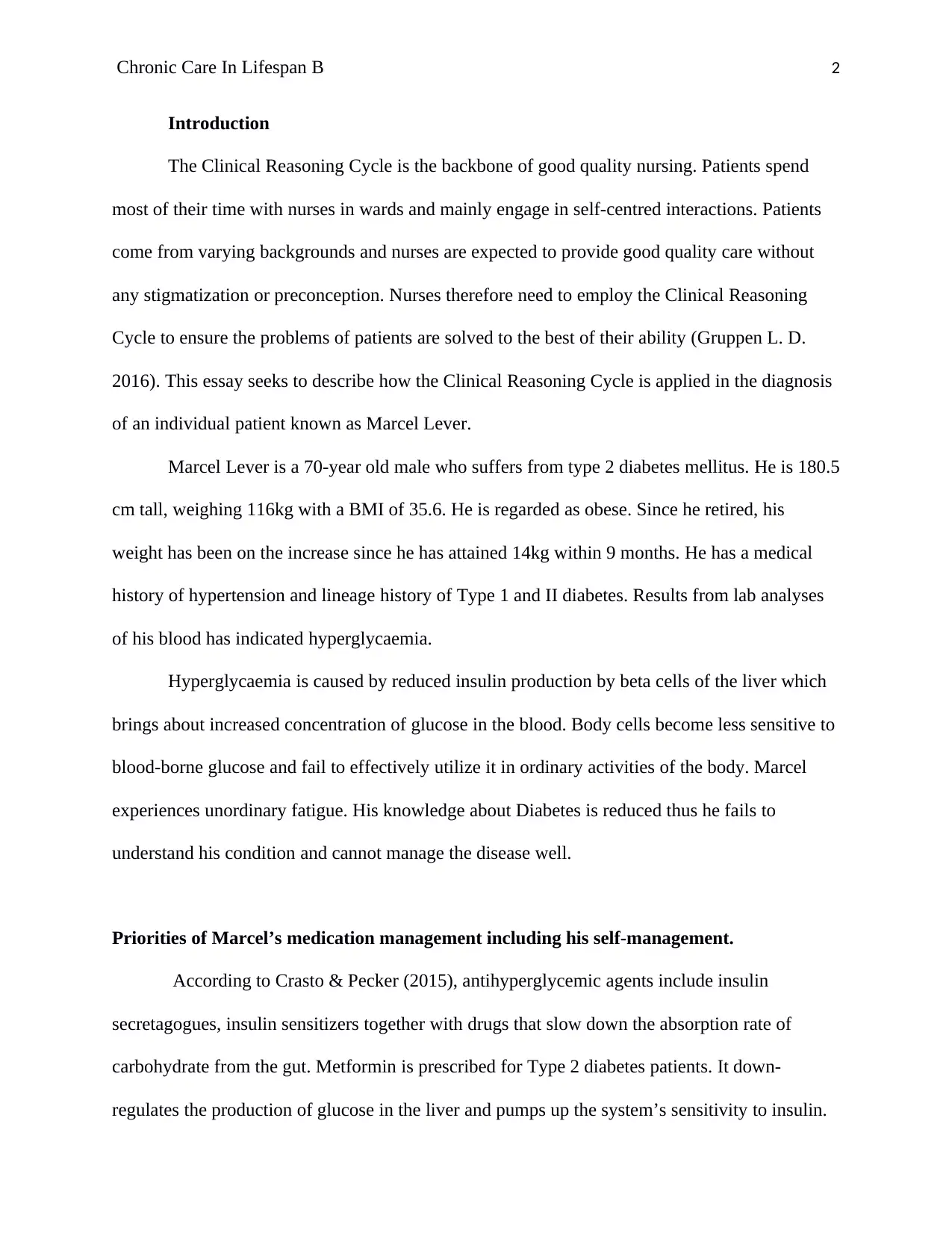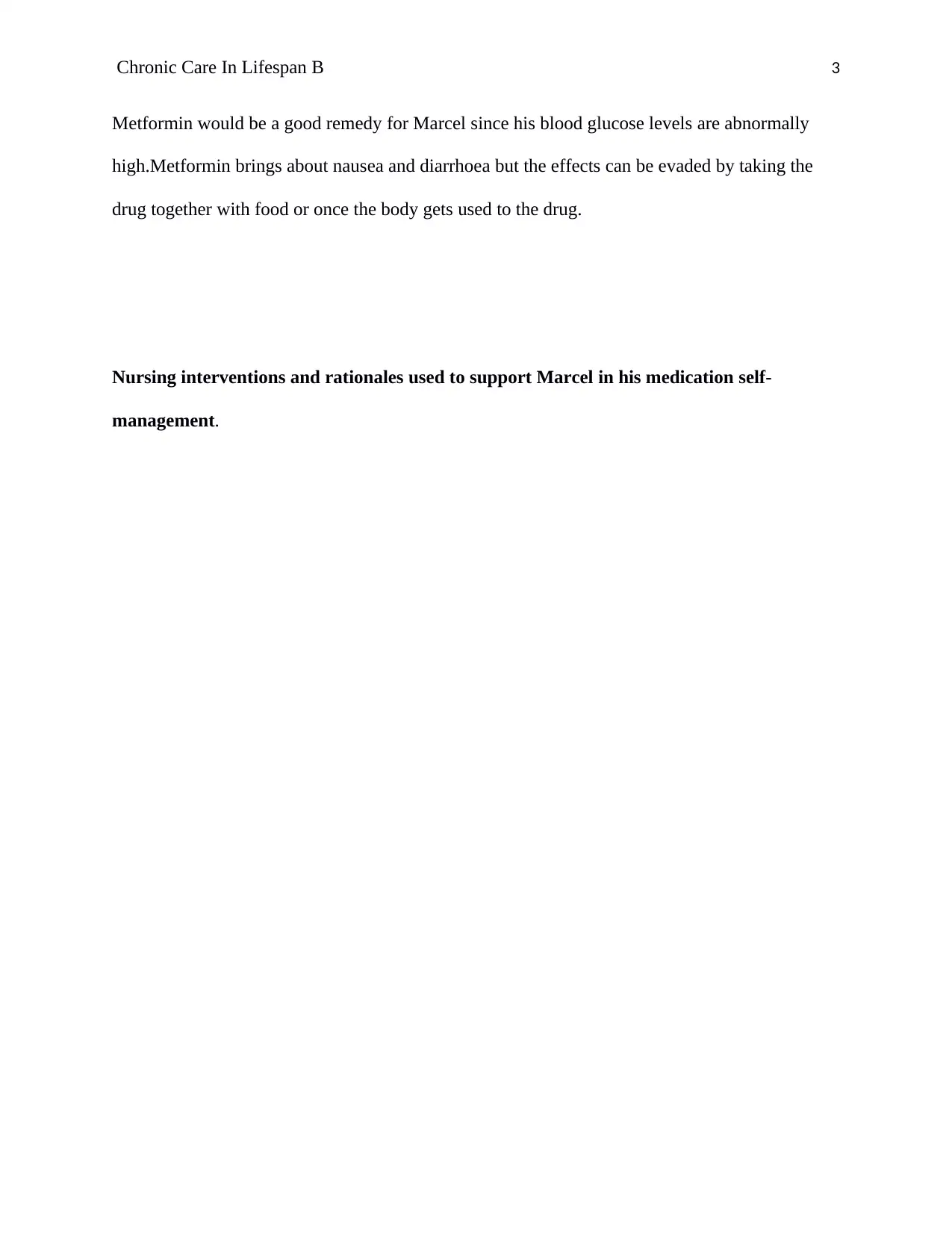Chronic Care Report: Diabetes Management in Lifespan B, NUR2102
VerifiedAdded on 2023/01/19
|5
|464
|51
Report
AI Summary
This report analyzes the case of Marcel Lever, a 70-year-old male with type 2 diabetes, applying the clinical reasoning cycle to his care. It describes the nursing implications related to older patients with diabetes, outlines optimal diabetes management strategies, and discusses the physical tasks and knowledge required for patient self-management. The report details Marcel's medical history, lab results, and medication, including Metformin. It also covers nursing interventions, rationales, and strategies for evaluating outcomes, focusing on supporting Marcel's self-management of his condition. The assignment addresses topics such as blood glucose monitoring, dawn phenomenon, lifestyle changes, and glucose-lowering agents. The report follows the guidelines provided in the NUR2102 assignment brief, including a focus on the nursing standards of practice.
1 out of 5












![[object Object]](/_next/static/media/star-bottom.7253800d.svg)